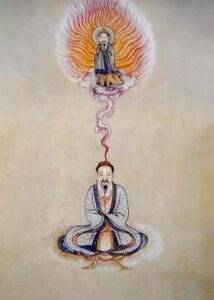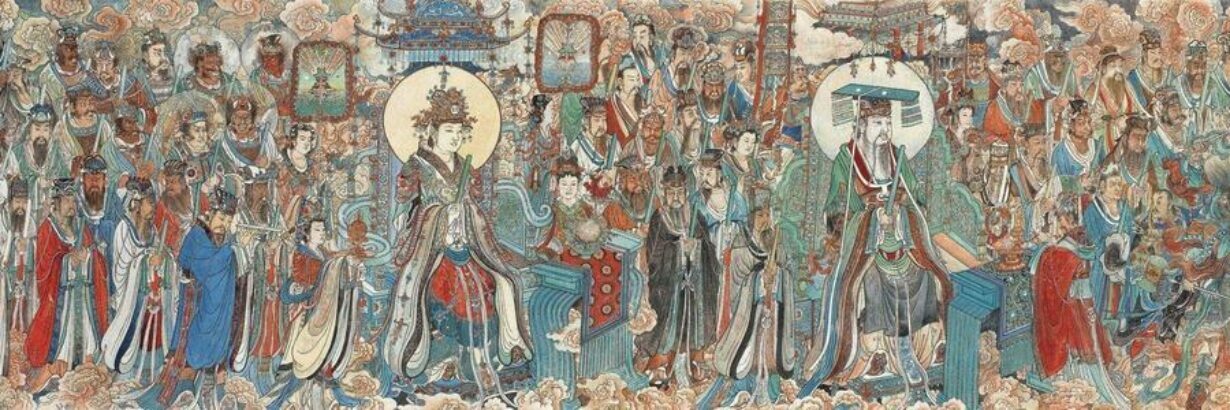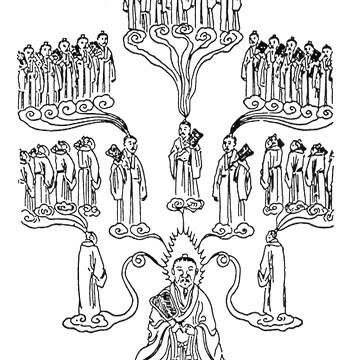Before believers participate in religious activities at temples or Taoist places, it is recommended to fast and purify yourself one to three days in advance, calming both your body and mind.
Fasting is another form of abstinence, often combined as “fasting and purification.” This means that believers should consume a vegetarian diet, maintain inner tranquility, and cleanse themselves before attending religious events. The mentioned religious activities refer to followers coming to temples to take refuge in the Three Treasures, offering incense, bowing, seeking enlightenment, and participating in Taoist practices.
Daoism places special emphasis on the personal purity of body and mind before engaging in religious activities. It believes that strict fasting and purification are essential for connecting with the divine and attaining spiritual enlightenment.
Nearly all Daoist scriptures emphasize the necessity of fasting and purification before engaging with sacred texts. Vegetarianism, in this context, refers to abstaining from consuming pungent vegetables such as garlic, onions, leeks, and certain herbs. These are called the “Five Pungent Flavors.” Avoiding these foods prevents negative emotions from arising and maintains clarity. Refraining from consuming animal products, which includes meat, blood, dairy, and eggs, is also practiced to cultivate compassion and spiritual harmony.

Fasting is a way to show respect to deities and spirits. The forms of fasting include abstaining from meat and alcohol. Bathing, wearing clean clothes, and refraining from sexual activities. While these external forms of fasting are important, the most crucial aspect is “mindful fasting,” which involves clearing one’s mind of distractions and cultivating a transcendent state. Daoism emphasizes various methods of spiritual cultivation, with inner transformation being paramount.
Daoist monks are held to strict fasting practices. Within Daoism, there are two main sects, Zhengyi and Quanzhen. Although the Zhengyi sect allows the consumption of meat when not engaging in religious activities, there are still guidelines, such as the “Four Abstinences.” During religious activities, both the Zhengyi and Quanzhen sects require similar fasting and purification practices. Quanzhen monks, especially those who have taken the Three Altars Ordination, adhere to even stricter fasting rules.
For lay practitioners, observing fasting on specific days, especially before and during religious activities, is commendable. There are various significant fasting days, such as the “Three Yuan Fasting” on the 15th day of the first, seventh, and tenth lunar months. These days celebrate the births of heavenly officials and are considered auspicious for seeking blessings, forgiveness, and relief from hardships. Other fasting days include the “Geng Shen Fasting” and “Jia Zi Fasting,” associated with specific dates in the Chinese zodiac.
In Daoism, compassion for all sentient beings is upheld, and refraining from killing is a key principle. The dietary choices are in alignment with this philosophy. Additionally, purification through bathing is essential. Bathing not only cleanses the body but also purifies the mind. Daoist texts recommend using “Five Fragrances” in bathwater, each with specific properties related to cleansing and spiritual connection.
Fasting and purification are essential for maintaining a clear connection with the divine and enhancing one’s spiritual practice. While seemingly simple, these practices are significant and require sincerity. Married couples are advised to abstain from sexual activities a day before participating in religious activities, wear clean clothing, and avoid alcohol consumption.
Written and Translated by Daoist Liu Cheng Yong, German Daoist Association.


What are the five fragrances for bathing?